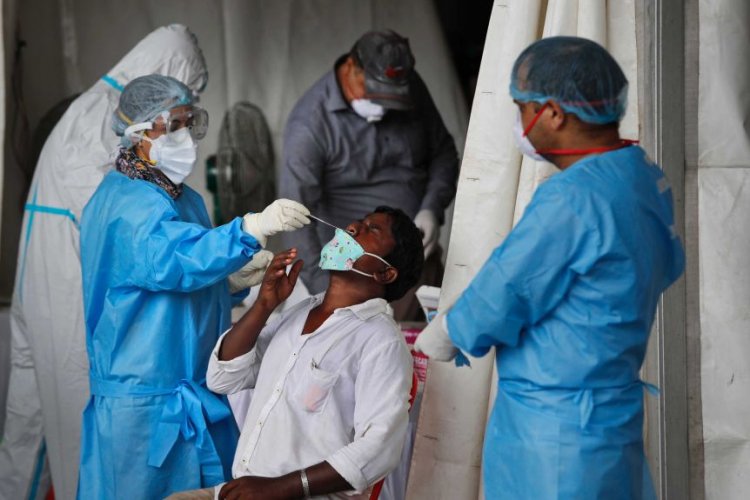India’s High Use of Antigen Tests Risks COVID Spread

Delhi: Fast but less accurate “rapid antigen tests” now account for 60% of all coronavirus tests in India, the head of a top diagnostic firm estimated on Wednesday, warning that such a high use could misrepresent the actual spread of the infection.
Antigen devices return results in about 15 minutes compared with several hours for the reverse transcription-polymerase chain reaction (RT-PCR) method, a laboratory-based process which the U.S. Centers for Disease Control and Prevention calls the "gold standard here" for COVID-19 detection.
Whereas antigen tests typically detect the virus around 80% to 90% of the time, lab-based tests detect the virus more than 95% of the time, say regulators and health experts in countries like the United States.
As a consequence of the reduced accuracy, India’s high use of antigen tests compared with global use of around 10%, risked underestimating the spread of coronavirus, according to the founder of Mumbai-based Thyrocare Technologies Ltd, one of India’s top-three diagnostic chains.
“It’s a wrong scale used to assess” the extent of the spread of the virus, Arokiaswamy Velumani told Reuters in a phone interview.
Though the total number of coronavirus cases reached close to 8 million on Wednesday, India’s official tally shows daily new cases have dropped sharply since a mid-September peak.
Velumani said Thyrocare’s centres are now receiving only about 2,500 samples a day for RT-PCR tests, down from a high of about 7,000 in September.
The health ministry and the Indian Council of Medical Research did not immediately respond to emails from Reuters seeking comment on Velumani’s comments.
RT-PCR dominates in the United States but authorities there are planning to increase the use of antigen tests to screen people.
India’s federal health ministry has not provided a breakdown of the test methods deployed, but state and federal officials have repeatedly defended the use of antigen tests to quickly identify infections in the country of 1.3 billion people.















































